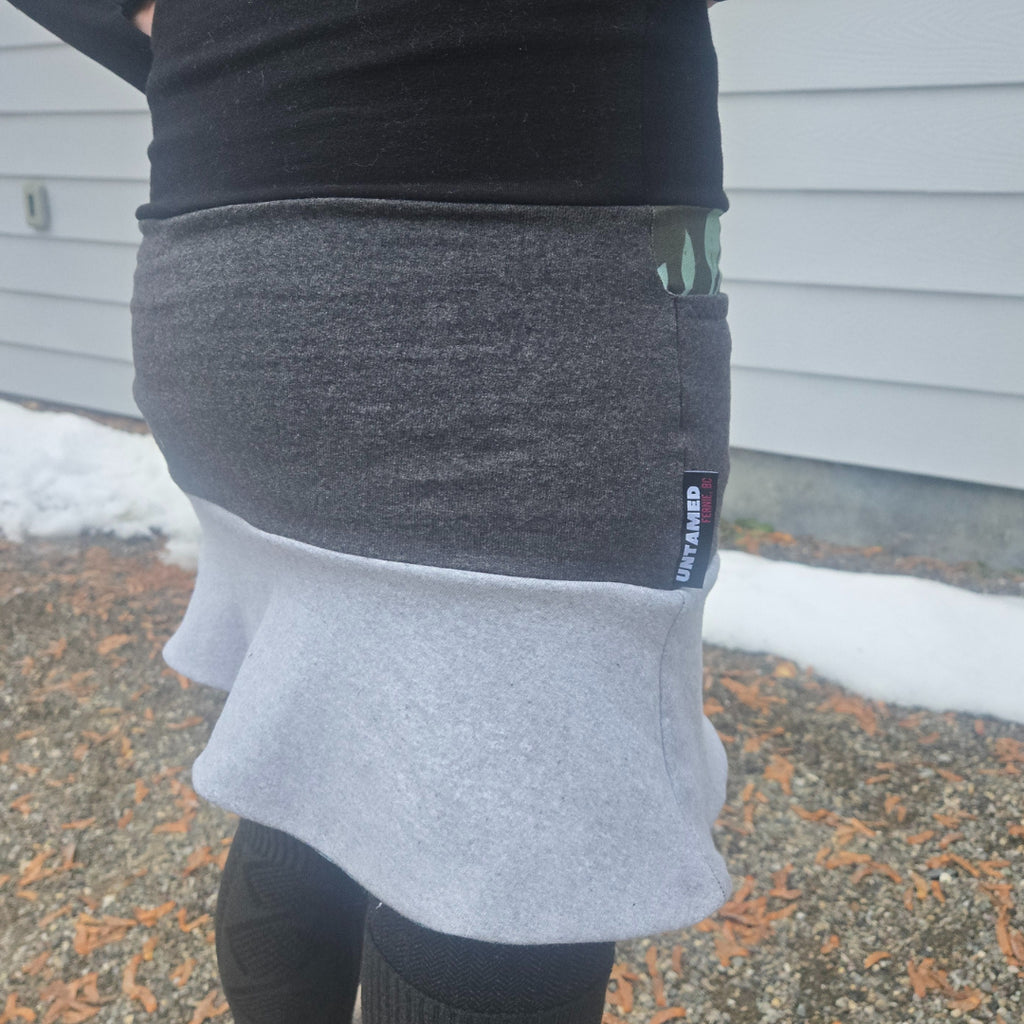Recycled Cotton/Naia™ Fleece —A Sustainable Choice for a Conscious Future
Posted by EMMA STEVENS

In an era where environmental consciousness is no longer a niche concern but a global imperative, the choices we make, particularly regarding the products we consume, hold significant weight. This extends to the very fabrics we choose to wear, impacting everything from resource depletion to waste management.
It's time to shift our focus to sustainable alternatives, and the Recycled Cotton/Naia™ Fleece stands out as a prime example of how innovation and environmental responsibility can converge.
This remarkable fabric, featured in our special collaboration with Ali Cat Arts and Wildsight, embodies a commitment to a healthier planet and a more mindful approach to what we put on our bodies.
The Environmental Benefits of Recycled Cotton/Naia™ Fleece
The advantages of Recycled Cotton/Naia™ Fleece are multifaceted, addressing several critical environmental challenges:
-
Reducing Textile Waste: A significant portion of the "recycled cotton" component comes from post-industrial and post-consumer textile waste. By repurposing these materials, we divert them from landfills, mitigating the environmental burden of decomposition and reducing the demand for virgin cotton cultivation.
-
Minimizing Resource Consumption: Growing conventional cotton is a notoriously water-intensive process, often requiring large amounts of pesticides and fertilizers. Recycled cotton drastically reduces these demands, conserving precious water resources and minimizing chemical run-off into ecosystems.
-
Sustainable Sourcing with Naia™: The inclusion of Naia™ cellulosic fiber further elevates the environmental credentials of this fleece. Naia™ is a sustainable fiber derived from responsibly managed pine and eucalyptus forests, ensuring that its production does not contribute to deforestation or habitat destruction. Its closed-loop production process also minimizes waste and recycles water and solvents.
-
Reduced Carbon Footprint: The entire lifecycle of Recycled Cotton/Naia™ Fleece, from its raw materials to its manufacturing process, aims to have a lower carbon footprint compared to conventional fabrics. By reducing reliance on new resources and minimizing energy-intensive processes, we contribute to combating climate change.
-
Biodegradability (for Naia™): Naia™ is certified as biodegradable and compostable, offering a responsible end-of-life solution for products made with this fibre, further lessening its environmental impact.
Why We Should Care About Our Fabrics
The phrase "you are what you eat" is widely accepted, but we should also consider the idea that "you are what you wear." The fabrics that come into contact with our skin every day have a direct impact on our well-being and, collectively, on the health of our planet.
-
Impact on Our Bodies: Many conventional fabrics are treated with a myriad of chemicals, dyes, and finishes that can be absorbed by our skin. Choosing fabrics made with sustainable and less chemically intensive processes can reduce exposure to these potentially harmful substances.
-
Supporting Ethical Practices: By choosing sustainable fabrics, we support companies and supply chains that prioritize fair labour practices, environmental stewardship, and transparency. This encourages a more ethical and responsible fashion industry overall.
-
Educating Ourselves and Others: Becoming aware of the environmental and social impacts of our clothing choices empowers us to make better decisions. It also allows us to advocate for change and inspire others to consider the origins and lifecycle of their garments.
-
Investing in the Future: Every sustainable purchase is an investment in a healthier future. By supporting eco-friendly fabrics like Recycled Cotton/Naia™ Fleece, we help build a circular economy and encourage further innovation in sustainable textile production.
This fabric has been amazing to work with. It was my first time sewing with recycled materials, and I found this one to be a dream. It's durable, easy to use, and sew – it doesn't fray or stretch. The fabric is also incredibly cozy, making it perfect for my designs. I'm excited to see how great the pieces will look on a variety of body types and to discover what people love about them.
The collaboration with Ali Cat Arts and Wildsight, utilizing this exceptional Recycled Cotton/Naia™ Fleece, is more than just a creative endeavour; it's a statement. It's a testament to the power of conscious choices and a call to action for all of us to become more discerning about the fabrics we embrace.
Let's start caring about what we put on our bodies, not just for our own well-being, but for the health and vitality of our shared planet. Learn More


